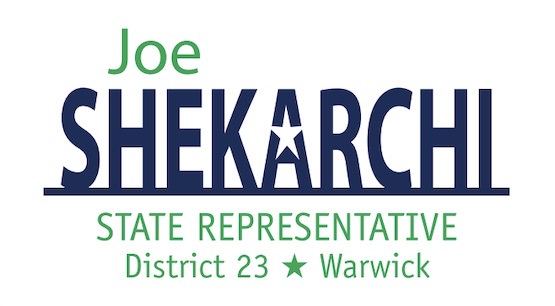Speaker Shekarchi Touts Housing Initiatives in State Budget
The state budget bill (2021-H 6122A), which was passed today by the House of Representatives, contains multiple initiatives backed by Speaker K. Joseph Shekarchi, including a new position for a state “housing czar,” Rhode Island’s first-ever dedicated funding stream for affordable housing and a pilot program to create supportive housing for chronically homeless individuals.
“Rhode Island is in the midst of a severe housing crisis, which the pandemic only exacerbated. It will take a multi-faceted approach to address our housing needs; there is no smoking gun or silver bullet, and some of the issues we’re facing are incredibly complex,” said Speaker Shekarchi. “I am very appreciative that my colleagues in the House understand the urgency with which we must act, and I am proud that we have made significant progress in setting forth concrete steps to move our state forward. For the first time ever, Rhode Island will have one point of contact to synthesize and streamline housing initiatives, as well as a dedicated funding stream for affordable housing and an innovative program to help the homeless.”
The budget includes more than $250,000 to support a deputy secretary position within the Executive Office of Commerce, which will serve as the state’s lead official to coordinate and facilitate housing production. This undersecretary position will serve as the executive director of the state’s Housing Resources Commission and will be required to provide extensive annual reporting on housing units, affordability, healthy housing stock and housing formation trends for each community, including recommendations to facilitate future development. The legislation to create this position was included in a seven-bill package of housing legislation that Speaker Shekarchi announced in March.
Also included in the budget is the establishment of a second tier of the state’s real estate conveyance tax, for residential property only, on the portion of sales over $800,000. It would take effect January 1, 2022. It increases the tax levied, from $2.30 per $500 to $4.60 per $500, on only the value of the sale over $800,000. Proceeds from this tax will be deposited in a new housing production fund.
The state’s housing production fund will be administered by Rhode Island Housing. Municipalities may also adopt housing incentive districts by ordinance that may receive financial or technical assistance, including payments for increased education expenses. The annualized impact is estimated to average $4.3 million. The budget also includes $25 million from general revenues to capitalize the fund.
Additionally, the budget codifies the state’s existing Livable Home Grant Program to provide subsidies (up to 50 percent) for certain disability and accessibility home modifications, which will enable people to remain in their homes. The budget includes $500,000 for the Livable Home Grant Program.
The budget authorizes a five-year pilot program to create permanent supportive housing for 125 chronically homeless Rhode Islanders. The “Pay for Success” program aims to proactively support participants to improve the services they receive, prevent crises, reduce the use of emergency medical services and reduce their engagement with law enforcement and the criminal justice system while supporting more effective spending on preventive services. The $6 million program establishes a public-private partnership model supported by social impact bonds. It is expected to save the state between $1.8 million and $2.6 million each year and will be evaluated annually for effectiveness.
The following legislation from Speaker Shekarchi’s housing package has already been passed by the House:
- 2021-H 5257, sponsored by House Labor Committee Chairwoman Anastasia P. Williams (D-Dist. 9, Providence), prohibits housing discrimination against those who receive government assistance to pay their rent. A 2019 study by Southcoast Fair Housing found that although Housing Choice Voucher (HCV) recipients can afford more than one-third of listed apartments in Rhode Island, they are ultimately rejected from 93 percent. Over 9,300 households in Rhode Island rely on HCV to afford housing. This legislation was signed into law by Governor Dan McKee.
- 2021-H 5950, sponsored by Speaker Shekarchi, creates a legislative commission to study all aspects of land use, preservation, development, production, regulation, zoning, housing and the environment. The commission will make recommendations to enable the state to ensure and promote land use that allows for sustainable and equitable economic growth in support of efforts to achieve the state’s affordable housing goals.
- 2021-H 5953, introduced by Rep. June S. Speakman (D-Dist. 68, Warren, Bristol), creates a special legislative commission to study the Rhode Island Low and Moderate Income Housing Act. A similar commission led by former Rep. Shelby Maldonado was created in 2016, and made numerous recommendations, one of which was to continue studying ways to meet the state’s affordable housing challenges.
- 2021-H 5260 SUB A, introduced by House Floor Manager John G. Edwards (D-Dist. 70, Tiverton, Portsmouth) extends for three years a tax exemption he originally sponsored to encourage more affordable housing development. The prior bill, which allows a tax exemption for properties under development until they are occupied, was set to expire Dec. 31.
- 2021-H 5568, introduced by House Deputy Speaker Charlene M. Lima (D-Dist. 14, Cranston, Providence) more easily enables local planning boards to establish a quorum for votes to help prevent delays in development matters before them.
